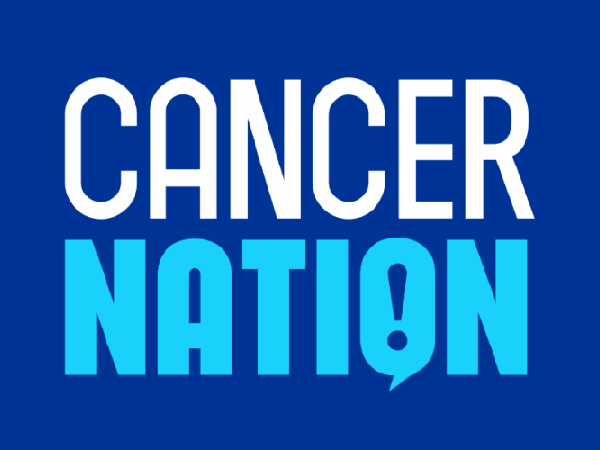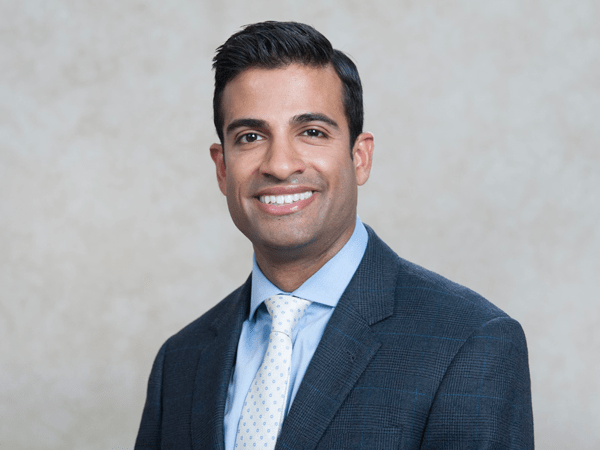Young adults with cancer are starting to break the silence about grief. Most people think of grief following the death of a loved one, but grief can accompany any event that disrupts or challenges our sense of normalcy or ourselves.1 During this first week of December, National Grief Awareness Week, we can raise awareness about grief in young adults with cancer to help ensure that no one grieves alone.
Grief, the emotional, mental, and physical response to loss, can take many forms such as guilt, anger, difficulty sleeping, and changes in appetite.2 Family and social networks and cultural influences contribute to how we experience and express grief.3 In young adults living with advanced cancer, cancer-related developmental losses (e.g., infertility, unlived life, disruptions in school/career) are compounded by physical treatment effects that are developmentally incongruent (e.g., fatigue, early menopause, brain fog).4 – 6
Recently, I listened to a podcast episode from “The Tough Friends Collective”7 by Chelsey Gomez, two-time cancer survivor, artist, and advocate, about losing friends to cancer. She brings attention to the need to normalize grieving for people who have died that are ‘online friends’ in the cancer community. She shares the utter devastation of losing a close friend in the cancer community, as if a part of her also died, someone who understood her without needing any explanation.
She gives voice to the burdens of survivors’ guilt and the ‘shoulds’ that can cloud your mind: should feel happier, should be more grateful. She shares a powerful reminder that is worth repeating: “Some days will be better than others. Be kind to yourself and give yourself grace.”
Young adults with cancer are starting to break the silence about grief. Most people think of grief following the death of a loved one, but grief can accompany any event that disrupts or challenges our sense of normalcy or ourselves.
How can we echo this so that everyone can hear it? It’s exciting to see that adolescent and young adult (AYA; ages 15-39) cancer support organizations, such as Elephants and Tea8, are now offering safe, clinician-led virtual spaces for AYAs at any point in their cancer experience to acknowledge the emotions that are often dismissed as emotions that we ‘shouldn’t’ or ‘don’t want to feel.’
In the “Sitting Together in Empathy and Emotional Perseverance” (STEEP) series9, topics include the complex emotions that often accompany grief such as anger, loneliness, guilt, fear, and burden.
Young adults with cancer live with grief about cancer-related losses amidst hope for the future and risk of uncertain treatment outcomes.10 Grief can be understood in the context of total pain, in which pain is not just physical but also includes psychological/emotional, social, and spiritual factors.11
How can we foster hope and joy amidst suffering and pain? As expressed in “The Isolation Journals” by Suleika Jaouad12, cancer survivor and advocate, The New York Times bestselling author, Emmy Award-winning journalist, and TED speaker, we can cultivate small joys. She describes in a recent post, “Prompt 311. Sunshine, Love, Salvation,” when she was driving home from chemotherapy and was beyond exhausted, she thought of her dogs waiting at home and their warm fur and she noticed the crescent moon in the night sky and she describes, “I felt nourished by these bonuses—by these small joys. I felt a little surge of energy, just enough to keep going.”
If you’re grieving, please know that you’re not alone. Let’s hold space for grief, and for cultivating small joys, throughout cancer care and beyond.
References
- Grief. https://my.clevelandclinic.org/health/diseases/24787-grief
- National Cancer Institute: Grief. https://www.cancer.gov/publications/dictionaries/cancer-terms/def/grief
- PDQ Supportive and Palliative Care Editorial Board. Grief, Bereavement, and Coping With Loss (PDQ®): Health Professional Version. 2024 Jun 26. In: PDQ Cancer Information Summaries [Internet]. Bethesda (MD): National Cancer Institute (US); 2002-. Available from: https://www.ncbi.nlm.nih.gov/books/NBK66052/
- Currin-McCulloch J, Kaushik S, Jones B. “When Will I Feel Normal?”: Disorienting Grief Responses Among Young Adults With Advanced Cancer. Cancer nursing. Mar-Apr 01 2022;45(2):E355-e363. doi:10.1097/ncc.0000000000000977
- Burgers VWG, van den Bent MJ, Dirven L, et al. “Finding my way in a maze while the clock is ticking”: The daily life challenges of adolescents and young adults with an uncertain or poor cancer prognosis. Original Research. Frontiers in Oncology. 2022-November-15 2022;12doi:10.3389/fonc.2022.994934
- Trevino KM, Maciejewski PK, Fasciano K, Prigerson HG. Grief and life disruption in young adults with advanced cancer. Journal of adolescent and young adult oncology. 2011;1(4):168-172. doi:10.1089/jayao.2011.0024
- The Tough Friends Collective. https://podcasts.apple.com/us/podcast/the-tough-friends-collective/id1764862769
- Elephants and Tea. https://elephantsandtea.org/
- STEEP Series. Elephants and Tea. https://elephantsandtea.org/events/steep-sitting-together-in-empathy-and-emotional-perseverance-645/
- Figueroa Gray M, Ludman EJ, Beatty T, Rosenberg AR, Wernli KJ. Balancing Hope and Risk Among Adolescent and Young Adult Cancer Patients with Late-Stage Cancer: A Qualitative Interview Study. J Adolesc Young Adult Oncol. 2018;7(6):673-680. doi:10.1089/jayao.2018.0048
- Itzep N, Roth M. Psychosocial Distress Due to Interference of Normal Developmental Milestones in AYAs with Cancer. Children (Basel). 2022;9(3):309. Published 2022 Feb 24. doi:10.3390/children9030309
- “The Isolation Journals” by Suleika Jaouad. https://theisolationjournals.substack.com/









